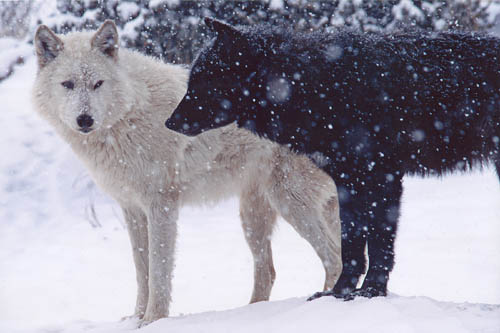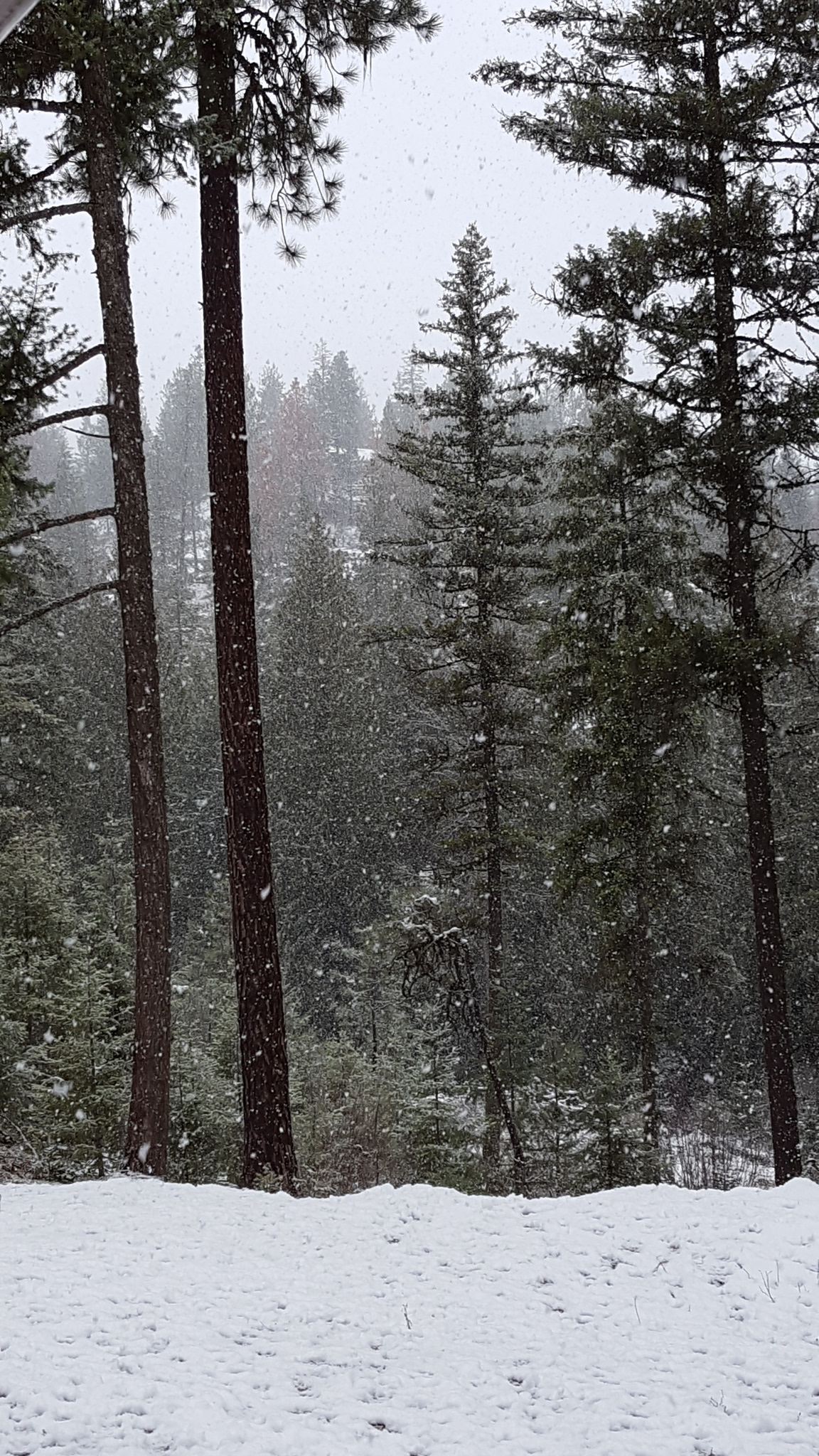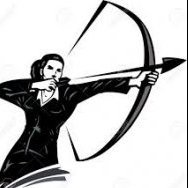-
Content count
2,834 -
Joined
-
Last visited
-
Days Won
28
Posts posted by rene
-
-
17 minutes ago, Stosh said:.... and the very neutrality of Tao is what then makes it have the greater virtue , Tao would be downgraded if it were to act with partiality. Similarly, the great show they are greater ,,according to some, , by sitting on their behind, staring south.
Are you not downgrading Tao by saying being 'in accordance with Tao' parallels with what is favorable to you?
-
6 minutes ago, Stosh said:Have you considered that men cannot 'practice' that which is spontaneous ?
Read thusly , it isn't that all men fail to act in accord with tao , its that you cannot do it with the intention of abiding by a rule.
 Of course. But that's waaay beyond this discussion. Feel free to jump in it.
Of course. But that's waaay beyond this discussion. Feel free to jump in it. 
Also: "Acting in accord with tao" - is another discussion even beyond that.

-
 3
3
-
-
28 minutes ago, wandelaar said:And that assumption is also highly problematic. I think Lao tzu is too optimistic about what even an ideal ruler can accomplish, and about what ordinary people will choose to do when allowed to do whatever they want.
Hmmm...I don't know if LZ is being too optimistic; my take is he was pretty aware of the feebleness of human nature (Ref: Ch. 70: My words are easy to understand and easy to perform, Yet no man under heaven knows them or practices them).
Optimism is there though; so perhaps it's based on what could be - if his ideas were implemented?
But who knows for sure; both your and my opinion on this is conjecture.
-
 1
1
-
-
My guess is it's a flute.
~~~~~~~~~~~~~~~~~
silent thunder,
Your words and tribute moved me to tears.
What a gift, she was and still is.
What a gift you are, to us.
Thank you.

-
 1
1
-
-
40 minutes ago, wandelaar said:Lao tzu never had a problem in taking sides and stating his position. ...
In general, I agree with this part of your post.
Care should still be taken, imo, when deciding which side his position appears to be on.
Differently biased renditions have him firmly on the side they promote.
-
 2
2
-
-
17 hours ago, wandelaar said:This topic isn't about my example! So it doesn't even matter whether or not I remembered it well. As I said before:
We know. Because of difficulties outline earlier - flowing hand's suggestion is a good one, if you'd like to explore this more (I'd be on board for that!) so...pick a translation, so we're all looking at the same one, that's not overly biased in any direction and we can see where this goes. Or - if you've already set this down, that's okay too.

-
18 hours ago, Fa Xin said:So supernatural stuff

I don't see much of that in the DDJ. The gentle/timely rain could very well be interpreted in a metaphorical sense.
The other possibility is that our world is much more connected than we are able to perceive... that things like how we act could have some sort of impact on something like the weather. I have no opinion on that ... but I do have an open mind.
Aw...you really gonna make me say it?

How about Both, (supernatural and metaphorical) at the same time?
Some may perceive it as one or the other - and use their interpretations to build entire ideas around - or to support their existing systems!
-
 1
1
-
-
18 minutes ago, wandelaar said:The Feng/English rendition is OK with me. It's a beautiful and sober translation that doesn't try to force things one way or another.
Agree, very much so.
I don't recall there being any errors (in the factual sense you describe) in the F/E -but maybe others have seen them.
I can see how there might easily be factual errors in translations by those who may have had an agenda while rendering...to support their own position(s).
-
35 minutes ago, Lost in Translation said:I don't think anyone is advocating no government,
I am.
-
 1
1
-
-
19 minutes ago, wandelaar said:I don't remember the chapter. Maybe it has a positive formulation in the sense that everything in nature will go well (I remember something about gentle or timely rain) as long as the ruler acts well morally speaking. I only mentioned it as an example of the kind of claims that could be considered suspect.
So here I am mainly interested in other examples from the Tao Te Ching. And when we have those other examples the next interesting thing would be investigating how that impacts on philosophical Taoism as a practically feasible doctrine.
Ah, okay thanks!
It's an interesting query, yours. One small difficulty with the investigation might be that so many translations are rather biased, sometimes intentionally others not, by the renderer's beliefs going in.
For example, in your other thread - the differences found between translations (Ch18&38) seemed to lead to different conclusions as to LZ's anti-Confucian intentions. By the same token, Christian slanted translations might have a whole different set of 'errors' than say a Buddhist slanted translation.
Whether it's the most accurate or the least accurate translation - what I like about the Feng/English rendition is that it feels free of any specific bias... and any 'bias' is easily spotted in a version's treatment of two lines in Ch1.

Fun stuff!
Thanks again!
-
 4
4
-
-
2 hours ago, wandelaar said:What claims made in the Tao Te Ching are simply wrong? And I don't mean in an ethical sense (for one can endlessly debate on that), but in a factual sense. If I remember well it is said that natural disasters will happen as a result of immoral acts by a ruler. Such a claim seems highly suspect to me.
But in this topic I am interested in reading about the ideas of the other Bums (that is: you) on this issue.

Hi wandelaar -
Could you (or anyone) tell me which Chapter that's in?
I don't recall anything similar in the F/E rendition - but my memory is sideways sometimes.
Thanks!
-
 1
1
-
-
21 minutes ago, OldDog said:Yes, while the chronology doesn't fit, the DDJ is not without criticism of ideas that were held in high esteem by Confucius.
On the decline of the great Tao,
The doctrines of 'humanity' and 'justice' arose.
When knowledge and cleverness appeared,Great hypocrisy followed in its wake.
When the six relationships no longer lived at peace,There was (praise of) 'kind parents' and 'filial sons.'
When a country fell into chaos and misrule,There was (praise of) 'loyal ministers.' Ch18
Therefore:
After Tao is lost, then (arises the doctrine of) humanity,After humanity is lost, then (arises the doctrine of) justice.
After justice is lost, then (arises the doctrine of) Ii.
Now Ii is the thinning out of loyalty and honesty of heart.
And the beginning of chaos. Ch 38These just probably show that ideas of justice, loyalty and piety already existed as part of the fabric of Chinese society long before Confucius promoted/emphasized them as a means to civil order.
... and probably Confucianism, as well.
China has had a long history of distrust of religious organizations as a threat to those in power ... and probably not without cause. Sort of a take on ... Keep your friends close but your enemies closer.
Here are other renderings of those parts of Ch18 and Ch38 (F/E) that you quoted.
EIGHTEEN
When the great Tao is forgotten,
Kindness and morality arise.
When wisdom and intelligence are born,
The great pretense begins.When there is no peace within the family,
Filial piety and devotion arise.
When the country is confused and in chaos,
Loyal ministers appear.THIRTY-EIGHT
.....
Therefore when Tao is lost, there is goodness.
When goodness is lost, there is kindness.
When kindness is lost, there is justice.
When justice is lost, there ritual.
Now ritual is the husk of faith and loyalty, the beginning of confusion.
Knowledge of the future is only a flowery trapping of Tao.
It is the beginning of folly......
Interesting thread wandelaar

-
 2
2
-
-
3 minutes ago, silent thunder said:such an important distinction that remains elusive...
thank you my friend for that clarification. in my fervor to express what I feel and seem to know, I often skim past the jist of things.
*deep bow* you are deeply appreciated
thanks!
No worries re elusive.
'Either/or' thinking is hard to overcome.
Especially with so many saying 'Life is just an illusion' - and then being whacked by Marblehead's chair.

-
 2
2
-
 1
1
-
-
4 minutes ago, Daemon said:Symbiosis?
☮️
I like that! A spiritual symbiosis: between Dao and all that has arisen.

-
6 minutes ago, silent thunder said:thinker and thought
buyer and seller
light and shadow
none of these are separate - yes, they still are separate
they are each other, complimentary, supportive and of one spectrum
not two
"Not two" - is still only half of it.
Coming to the realization that all things are simultaneously 'separate' and 'not-separate' -- the fullness of "Both, same time" appears.
-
 1
1
-
-
8 minutes ago, silent thunder said:*shrug* as you see it.
to me, I can veritably taste the paradox... and it's blissful.
an inroad to the mysterious gateway.
utterly constant, the never ceasing shift of change.
life imbued with buoyant groundedness
simultaneously grounded in the seeming solidity of the manifest
while saturated in the quantum soaring influence of never ceasing shift
pure magic!
That ^ well describes the same way dao is in all things. Unboundaried. Both, same time.
-
 2
2
-
-
5 hours ago, Stosh said:Faced with the reality that we have no fixed self, it is shown we can change each moment , and so there can be no transformations.
The idea that there are, is an illusion born from the transient contact we have with others and the simplified symbolic characters we use to see one another.
And the constancy required to show change is supplied by material quicksand of a dependent origination.
so each moment is remade on the ashes of the moment before ,and to the degree we pull up the anchors , the past is gone, gone as gone can be, and yet written in stone ,indelible.
I think ZZ called it: A springtime in every moment.
-
 4
4
-
-
2 minutes ago, Lost in Translation said:Oh, and I want chickens. Yes, I'm going to raise chickens - or at least a half dozen or so.
Better check local ordinances/HOA/developer regs before you commit to anything. They are very left-snowflake out near the coast. Owning chickens might be animal cruelty, not to mention cluckers also bring property values down, ya know.

-
 1
1
-
-
Um... lose the traffic?? Have you ever been to Seattle??

Whole I-5 corridor is like this...
Ah...apologies LiT. Not meaning to rain on your upcoming adventure. We drove there for a Seahawks game 2yrs ago...nightmare. But maybe where you're going its quieter. Hope so! For sure there's more trees

Kitsap Co is beautiful, even with a quarter million people. Our county has 8,000. LOL
-
 1
1
-
-
More needs to be said, I think, to the OP's valid questions.
Speaking only for myself.
Unlike Odin - I don't 'feed' my dark wolf in the same manner he suggests.
What I do - is to not give it more power by spending energy trying to kill it, or suppress it, or deny it's existence.
In the rare times it howls - I let it cycle through of its own accord, feeding it no attention or importance - other than a casual observation. Soon, it returns to the dark corner in which it dwells and I go about my day.
Neither of my wolves are very hungry; they co-exist naturally and I leave them to it.

-
 1
1
-
 1
1
-
-
From one hell into a lesser hell.

Great luck with your move!!

-
 1
1
-
 1
1
-
-
9 minutes ago, Nungali said:Have you explored your own ' astrological arrangements ' ? I did a workshop a while back on reading and interpreting one's own chart . Great stuff ! I realised things about my chart and myself that no other astrologer ever picked up - due to the extra personal insights one can have about themselves , beyond what an astrologer knows. Objective knowledge is good, but an astrologer lacks others subjective knowledge .
2 minutes ago, Lost in Translation said:I have. I'm married to an astrologer! It took me about ten years to take this stuff seriously, but hey - if I can accept a four thousand year old magical fortune telling book written in binary, or non-local extrasensory perception using clear quartz crystals and water, or semen retention as a means of achieving immortality then what's so hard to accept about planets guiding our fates based upon when and where we were born...?
Boy you guys sure have complicated systems.

Birds tell me how much longer it will rain.

-
 1
1
-
 1
1
-
-
1 hour ago, Kongming said:Please feel free to share whatever insights or recommendations you may have.
Kongming - you might find some of your questions answered here -
https://thewisdomwarrior.com/2018/05/25/journey-beyond-the-ordinary-be-extraordinary-bohdi-sanders/
He's marketing his books, for sure - but there may be some useful information in his blogs as well.
-
2 minutes ago, Starjumper said:Every bit of knowledge that becomes power has death as its central force. Death lends the ultimate touch and whatever is touched by death indeed becomes power.
A man who follows the paths of sorcery is confronted with imminent annihilation every turn of the way, and unavoidably he becomes keenly aware of his death. Without the awareness of death he would be only an ordinary man involved in ordinary acts. He would lack the necessary potency, the necessary concentration that transforms one's ordinary time on earth into magical power.
Thus to be a warrior a man has to be, first of all, and rightfully so, keenly aware of his own death. But to be concerned with death would force any one of us to focus on the self and that would be debilitating. So the next thing one needs to be a warrior is detachment. The idea of imminent death, instead of becoming an obsession, becomes an indifference.
Now you must detach yourself; detach yourself from everything. Only the idea of death makes a man sufficiently detached so he is incapable of abandoning himself to anything. Only the idea of death makes a man sufficiently detached so he can't deny himself anything. A man of that sort, however, does not crave, for he has acquired a silent lust for life and for all things of life. He knows his death is stalking him and won't give him time to cling to anything, so he tries, without craving, all of everything.
A detached man, who knows he has no possibility of fencing off his death, has only one thing to back himself with: the power of his decisions. He has to be, so to speak, the master of his choices. He must fully understand that his choice is his responsibility and once he makes it there is no longer time for regrets or recriminations. His decisions are final, simply because his death does not permit him time to cling to anything.
And thus with an awareness of his death, with his detachment, and with the power of his decisions a warrior sets his life in a strategical manner. The knowledge of his death guides him and makes him detached and silently lusty; the power of his final decisions makes him able to choose without regrets and what he chooses is always strategically the best; and so he performs everything he has to with gusto and lusty efficiency.
When a man behaves in such a manner one may rightfully say that he is a warrior and has acquired patience. When a warrior has acquired patience he is on his way to will. He knows how to wait. His death sits with him on his mat, they are friends. His death advises him, in mysterious ways, how to choose, how to live strategically. And the warrior waits! I would say that the warrior learns without any hurry because he knows he is waiting for his will; and one day he succeeds in performing something ordinarily quite impossible to accomplish. He may not even notice his extraordinary deed. But as he keeps on performing impossible acts, or as impossible things keep on happening to him, he becomes aware that a sort of power is emerging. A power that comes out of his body as he progresses on the path of knowledge. He notices that he can actually touch anything he wants with a feeling that comes out of his body from a spot right below or right above his navel. That feeling is the will, and when he is capable of grabbing with it, one can rightfully say that the warrior is a sorcerer, and that he has acquired will.
A man can go still further than that; a man can learn to see. Upon learning to see he no longer needs to live like a warrior, nor be a sorcerer. Upon learning to see a man becomes everything by becoming nothing. He, so to speak, vanishes and yet he's there. I would say that this is the time when a man can be or can get anything he desires. But he desires nothing, and instead of playing with his fellow men like they were toys, he meets them in the midst of their folly. The only difference between them is that a man who sees controls his folly, while his fellow men can't. A man who sees has no longer an active interest in his fellow men. Seeing has already detached him from absolutely everything he knew before.
Every action and non-action is one of equal creation and destruction;
Every moment that passes is one of equal life and death.
This cannot be avoided - why would one want to avoid it?
One's life and one's death are already here; such is the way.
Those who see know this.
It's what we choose to do in the space between these moments - that makes life fun.

-
 1
1
-



Being a modern Viking and the Dao
in General Discussion
Posted
TomBrad - that's an excellent link!
I've had it bookmarked for years; it's my online go-to for all things rune.